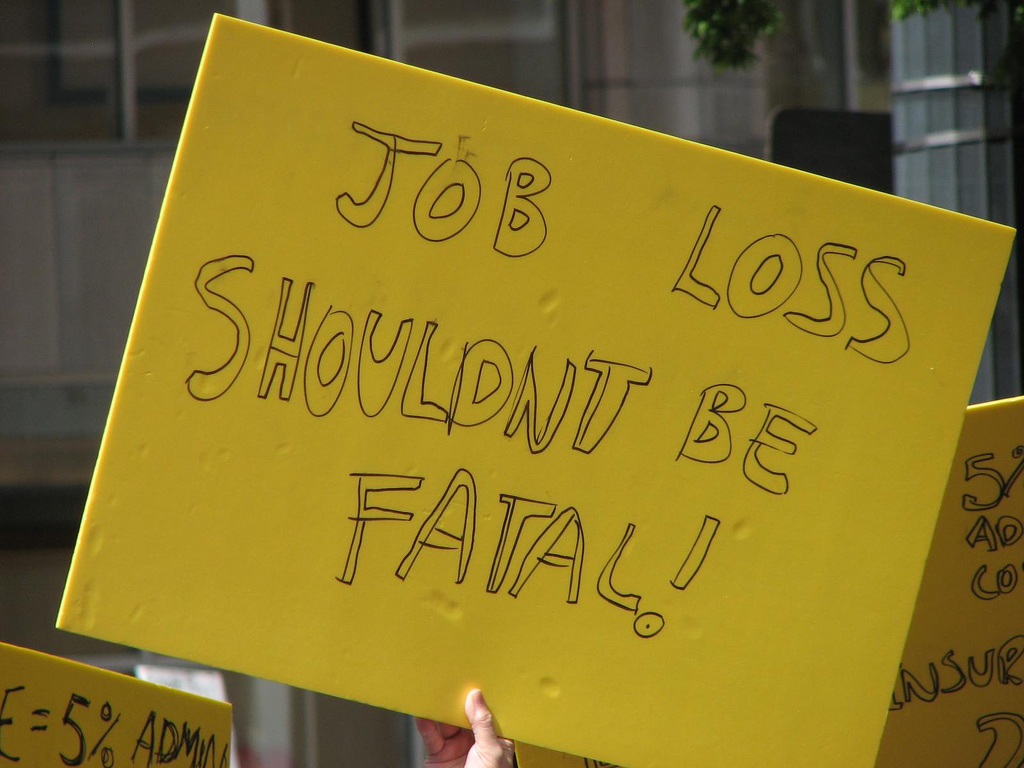Compton, California has birthed its fair share of artists who have gone on to make a mark in the rap and hip hop industry, but it’s Dr. Dre’s protege, Kendrick Lamar who has taken the industry by storm. Formerly known as K-Dot, the rapper’s Section.80, and good kid, m.A.A.d city have all been critically acclaimed. good kid, M.A.A.d city was dubbed an instant classic by many, and the album went platinum. According fellow singer-songwriter and producer Erykah Badu, good kid is, “…an album that not only tells a compelling story, but a near-definitive one of a specific time and place, offering a window on the varying complexities of turn-of-the-century Compton.”[1] An important observation; like most rappers, Lamar waxes lyrical about his upbringing, his hometown – struggling Compton – and his desire to, in the words of the character playing his mother at a skit at the end of “Real,” “Come back a man, tell your story to these black and brown kids in Compton.” These words, taking into consideration the current context of race relations in the United States, are extremely powerful.
That brings us to his most recent release To Pimp a Butterfly, an intentional reference to To Kill a Mockingbird – appropriate, given the racially-charged content of the album. The anticipation was cultivated almost tenderly, with singles dropped periodically and the release date left unannounced until three weeks before the official launch date – March 23rd. The first single released off the album was “i,” divisive in that it deviates from the dark, cinematic undertones of Lamar’s usual fare. The single is inundated with confidence and optimism, self-love that can only be forged in the smithy of racial empowerment. Undeniably funky, it foreshadowed the jazziness that plays Atlas to Kendrick Lamar’s world in Butterfly. The second single off the album was a divergence from the uplifting message of the first, a track called “The Blacker the Berry” presumably in response to the controversial Azealia Banks’ criticism over Lamar’s comments regarding Ferguson.[2] Addressing the looting and violent rioting that some protesters following the grand jury decision were accused of, Lamar emphasized the importance of black self-respect: “[change] don’t start with just a rally, don’t start from looting — it starts from within.”[3]
“The Blacker the Berry” is scathing, and Lamar is as accusatory of America’s institutionalized racism as he is of himself, spitting, “I’m the biggest hypocrite of 2015” and weaving the theme of hypocrisy throughout the song. He explores his identity as a black man, struggling with the label of African-American, his African heritage, speaking to the “institutionalized manipulations and lies” perpetuated by the system, demanding the listener admit, “You hate me, don’t you? You hate my people […]” Anti-black slurs ricochet: “I want you to recognize that I’m a proud monkey.” At the very end of the song, he turns the mirror back towards himself, recalling his own history of gang violence – almost lambasting himself. “So why did I weep when Trayvon Martin was in the street, when gangbanging made me kill a ni**a blacker than me? Hypocrite!”
The explosive last line is unapologetically difficult to swallow, and Lamar has no intention of making Butterfly easy to swallow. Layers upon layers of historically black musicality in every song; a cacophony, if not for the masterful way in which brass, wind and bass weave together. The third single released, “King Kunta,” was quickly overshadowed by the arrival of something far bigger than it: the album itself. Accidentally released March 15 on iTunes, it was fully released on March 16th, taking many fans by surprise and setting a Spotify record with 9.6 million streams in a day.[4] Right off the bat, with “Wesley’s Theory,” you are taken on a ride akin to Jay-Z and Kanye West’s Watch the Throne: a celebration of black excellence, as Jay-Z would put it, “opulence, decadence.” A critic called Butterfly “[…] black insomuch as the album is a cosmic slop of nearly every musical movement that we Negroes have founded on this continent.”[5] The album opens with a sample of “Every Ni**er is a Star” by Boris Gardiner, and features George Clinton of the Parliaments, an avowed inspiration.[6] “King Kunta” is deceptively evocative beneath unabashed rhythm – Kendrick Lamar often refers to himself as “King Kendrick” but in this subversion he relates to Kunta Kinte, a Gambian slave who had the front part of his foot cut off as punishment for trying to escape slavery in the burgeoning United States. The next few tracks follow with similar funkadelic allusions to the race conversation that will proliferate the latter part of the album; but the arrival of “u” radically changes everything and jolts a new perspective into “i.” The outro to “These Walls” preludes “u,” with a spoken word piece by Lamar that transitions one song into the next throughout the album:
I remember you was conflicted
Misusing your influence
Sometimes I did the same
Abusing my power full of resentment
Resentment that turned into a deep depression
Found myself screaming in a hotel room…
“u,” appropriately, begins with Lamar screaming and repeating “Loving you is complicated” ten times in a frantic voice. “Complicated—” an Atlantic piece submits, “not impossible, not difficult, but complicated. Everything in Lamar’s world is complicated, probably because everything in the real world is.”[7] He stumbles through the song, crying, drinking, eviscerating himself with cruelty: he wasn’t there for his sister, he wasn’t there for his city, he wasn’t even there for his friend Chad while he died in a hospital bed save for a Facetime call.[8] The last lines in the song are jarring: “And if I told your secrets/The world’ll know money can’t stop a suicidal weakness” and lead into the cautiously optimistic “Alright” with Kendrick singing against a broken, brassy backdrop, “I’m f*cked up/homie, you f*cked up/but if God got us/then we gon’ be alright.”
Not enough can be said about the juxtaposition of “u” against “i,” but it is necessary to know that these existential questions are a pivotal part of the black experience. Kanye West explored these questions in Yeezus, and Watch the Throne is a twelve-song testament; Frank Ocean alludes to it in “Swim Good” (referenced by Kendrick in “These Walls”), Janelle Monae actively preaches against it in The Electric Lady.[9] Even the September-released “i” receives a facelift in Butterfly. It gets stripped down to seem like it’s being performed live, but retains its optimism until a fight breaks out in the crowd. Kendrick stops immediately, exclaiming “Not on my time – not on my time!” and demands of the crowd, “How many ni**as we done lost, bro, this year alone?” He continues, trying to silence the arguing and instill a sense of camaraderie amongst them with an a capella verse and a lesson in linguistics: “N-E-G-U-S, definition: Royalty; King Royalty.” Instead of ni**er – the turn of tongue that has damned so many black people to slavery, and that renders many, like Oprah who condemns the use of the “n” word, uncomfortable – he encourages the use of this word of black excellence, validating Oprah and offering an olive branch in the form of a word that only has empowering connotations.[10]
“Kendrick Lamar, by far, realest Negus alive.”
There is no way to dissect, discuss and lampshade every single track on this album under a word limit. But the last track of the album demands a paragraph of its own.
Tupac “2Pac” Shakur is regarded by many as being the most influential rapper of all time; Lamar has repeatedly mentioned 2Pac as one of his greatest influences, and it stands to reason.[11] 2Pac’s legacy is controversial but it is undeniable. His music is influenced by his family’s Black Panther notoriety, including his step-aunt Assata Shakur, the first woman to be added to the FBI’s most wanted list.[12] “Mortal Man” is to this album what “Real” was for good kid: putting lessons learnt throughout the album into perspective, to realize oneself in the grand scheme of things. Kendrick Lamar asks of the listener, “When shit hit the fan, is you still a fan?” citing all the ways in which he could get in trouble over the course of his lifetime: being framed for crimes he did not commit, arrested on exaggerated charges to fit the agenda of institutionalized racism. Not unlikely scenarios given the backdrop of continued, arguably escalated, police brutality against black people and people of color. He invokes the legacy of Nelson Mandela, a man jailed for more than two decades for his commitment against apartheid – it’s not just homage, it is a statement of intent, a promise to fight the good fight, working for justice and peace. It is a bold promise, and one that he obviously wants to be held to. But it is the outro of the song that leaves the most lasting impression. He starts reciting the poem that has laced one song to another in its totality. Blackness must unite to prevail; blackness must forget the colors of gangs; blackness must forgive itself and reject the evils of “Lucy” – Lucifer, who has haunted Kendrick through his career. “If I respect you, we unify and stop the enemy from killing us/But I don’t know, I’m no mortal man, maybe I’m just another ni**a.”
Paper crumples, and you can almost visualize Lamar looking up with an almost sheepish look on his face, “Sh*t and that’s all I wrote.” The outro quickly establishes itself as a conversation between two people: Kendrick Lamar and his idol, Tupac Shakur. The late Shakur’s words are taken from his 1994 interview with a Swedish radio station, but it doesn’t seem like a conversation with a ghost. He may as well have been talking to Dr. Dre with the familiarity and slight awe that is in Lamar’s voice.[13] They contemplate poverty, impending revolution, the future of black youth: and isn’t it natural for a 27 year-old black man against the background of Ferguson, “I Can’t Breathe,” and #BlackLivesMatter to be asking such questions of his idol? Butterfly is an album for disenfranchised youth of color struggling to find a voice in a society that purports to be post-racial and is anything but.
Perhaps Kendrick Lamar is a butterfly, and his discography is his evolution. Section.80 wove together a setting for the story of Kendrick’s Compton; good kid, m.A.A.d city was a memoir, one teeming with his experience of racism and exploring vice along the way; but To Pimp a Butterfly is bigger than Compton: it’s America. It’s Kendrick Lamar exploring his role as a black man with a voice that is becoming increasingly influential; it is the narrative of a man terrified and insecure of the temptation that surrounds him in his new-found fame, and – and perhaps most importantly – it is the manifesto of an apostle. In his words, Lamar is doing “god’s work” on earth; how timely, this album, given what is essentially the reinvocation of the civil rights movement.[14] If to To Pimp a Butterfly is a “75-minute story of “survivor’s guilt” that finds some sort of resolution at the end, the question must be begged: what is next for Kendrick Lamar?[15] Activism has always manifested itself through multiple mediums and Lamar joins the ever-increasing number of black artists that have anointed themselves activists. Will he work through musicianship? Or will he step out from behind the curtain of artistry and take the helm of the resurging civil rights movement?
[1] Badu, Erykah. 2013. ‘Kendrick Lamar’. Interview Magazine. http://www.interviewmagazine.com/music/kendrick-lamar/.
[2] Azealia Banks, Twitter post, January 10, 2015, 12:07am, https://twitter.com/AZEALIABANKS/status/553644148130316288.
[3] Edwards, Gavin. 2015. ‘Billboard Cover: Kendrick Lamar On Ferguson, Leaving Iggy Azalea Alone And Why We’re In The Last Days’. Billboard. http://edit.billboard.com/articles/news/6436268/kendrick-lamar-billboard-cover-story-on-new-album-iggy-azalea-police-violence-the-rapture.
[4] Kastrenakes, Jacob. 2015. ‘Kendrick Lamar Sets Spotify World Record With 9.6 Million Streams From New Album In A Day’. The Verge. http://www.theverge.com/2015/3/17/8237311/kendrick-lamar-spotify-record-album-streams.
[5] Charity, Justin. 2015. ‘Review: Kendrick Lamar’s ‘To Pimp A Butterfly’ Is A Dark Album For A Dark Time’. Complex. http://www.complex.com/music/2015/03/album-review-kendrick-lamar-to-pimp-a-butterfly.
[6] Rolling Stone,. 2015. ‘The Trials Of Kendrick Lamar: Inside The New Issue’. http://www.rollingstone.com/music/news/the-trials-of-kendrick-lamar-inside-the-new-issue-20150311.
[7] Kornhaber, Spencer. 2015. ‘Kendrick Lamar’s ‘To Pimp A Butterfly’ Is Noisy, Complicated, And Brilliant’. The Atlantic. http://www.theatlantic.com/entertainment/archive/2015/03/kendrick-lamars-bittersweet-cacophony-to-pimp-a-butterfly/387949/.
[8] Kendrick Lamar, Twitter post, September 4, 2015, 10:57pm, https://twitter.com/kendricklamar/status/375316718823800832
[9] Lasharie, Neiha. 2013. ‘Janelle Monáe: Revolution Through Music’. Northeastern University Political Review. https://nupoliticalreview.org/?p=2668.
[10] Yvette,. 2015. ‘Oprah: “You Can’T Be My Friend And Use The N Word Around Me” | Breaking Brown’. Breakingbrown.Com. http://breakingbrown.com/2013/07/oprah-you-cant-be-my-friend-and-use-the-n-word-around-me/.
[11] Graham, Nadine. 2015. ‘Kendrick Lamar: The West Coast Got Somethin’ To Say’. Hiphopdx. http://www.hiphopdx.com/index/interviews/id.1641/title.kendrick-lamar-the-west-coast-got-somethin-to-say.
[12] Obejas, Achy. 2014. ‘Why Cuba Will Never Send Assata Shakur To The U.S.’. Chicago Tribune. http://www.chicagotribune.com/news/opinion/commentary/ct-cuba-assata-shakur-fbi-america-obama-perspec-1230-20141229-story.html.
[13] FACT Magazine,. 2015. ‘Listen To The Full Tupac Interview Featured In Kendrick Lamar’S To Pimp A Butterfly’. http://www.factmag.com/2015/03/17/listen-to-the-full-tupac-interview-featured-in-kendrick-lamars-to-pimp-a-butterfly/.
[14] Muhammad, Latifah. 2015. ‘Kendrick Lamar: “I’m Doing God’s Work”‘. BET. http://www.bet.com/news/music/2015/03/16/kendrick-lamar-i-m-doing-god-s-work.html.
[15] Coscarelli, Joe. 2015. ‘Kendrick Lamar On His New Album And The Weight Of Clarity’. New York Times. http://www.nytimes.com/2015/03/22/arts/music/kendrick-lamar-on-his-new-album-and-the-weight-of-clarity.html?_r=0.



